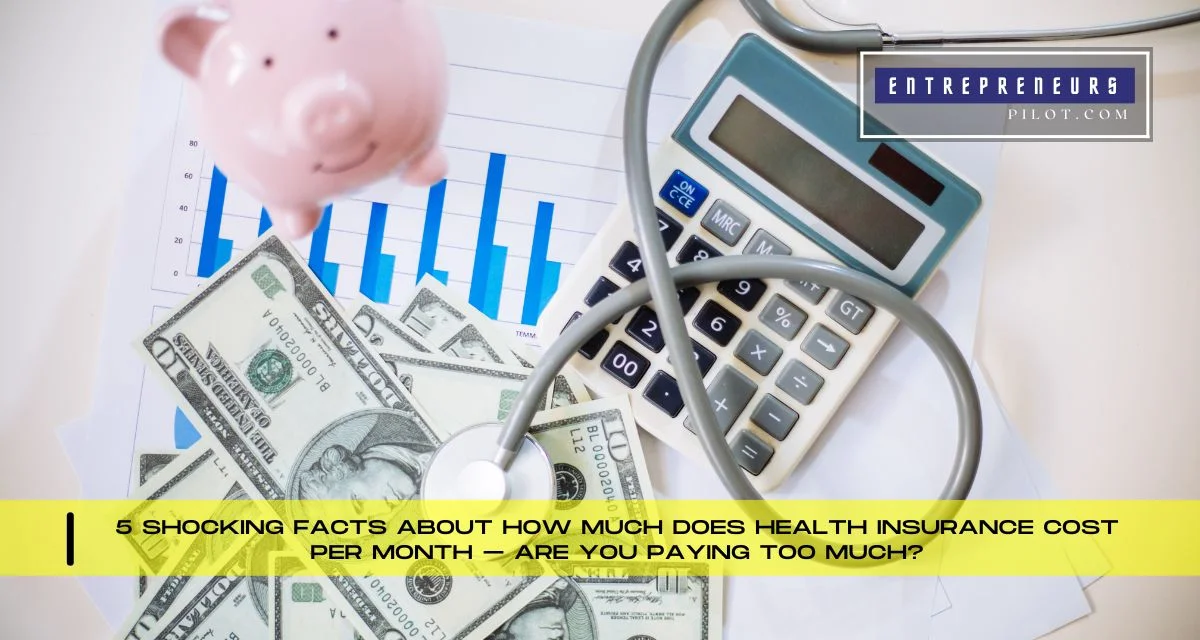Introduction
In today’s fast-paced world, health insurance has become a cornerstone of financial security. But when it comes to How Much Does Health Insurance Cost Per Month, many of us are left scratching our heads, wondering if we’re shelling out more than necessary. It’s a question that looms large, especially in a landscape where healthcare costs are as unpredictable as they are unavoidable. Prepare to be surprised, perhaps even shocked, as we unravel five startling facts about monthly health insurance costs that could dramatically shift your perspective. Are you unknowingly overspending on your health insurance? Let’s dive deep into the numbers and narratives that could potentially transform your approach to healthcare spending.
Table of Contents
5 Shocking Facts About ‘How Much Does Health Insurance Cost Per Month’
The Wide Range of Premiums
The cost of health insurance varies significantly across the board, influenced by factors such as age, location, income, and the level of coverage chosen. On average, individuals can expect to pay anywhere from a few hundred to over a thousand dollars per month. This staggering range underscores the importance of shopping around and understanding what factors contribute to the cost of your premium. It’s not just about finding any plan; it’s about finding the right plan for your specific needs and circumstances.
The Hidden Impact of High Deductibles
Many individuals opt for plans with lower monthly premiums, not fully grasping the implications of high deductibles. A low monthly cost can seem appealing, but it often means you’ll face higher out-of-pocket expenses before your insurance kicks in. This can be particularly shocking when you need to use your insurance for significant medical events. The allure of lower monthly payments might not seem so attractive when faced with a $5,000 deductible in the time of need.
- For Expert Financial Insights And Guidance, You Can Visit Our Sister Site – ArabsGeek.com Now!
- Curiosity Piqued? Dive Into the Most Captivating Financial Content by Visiting Our Homepage!
- Unlock Exclusive Business Opportunities! 🚀 Connect with Us Now at our Email: [email protected]!
The Subsidy Surprise
A substantial number of Americans qualify for subsidies to help cover the cost of their health insurance, yet many are unaware of this potential financial aid. The Affordable Care Act (ACA) provides income-based subsidies that can drastically reduce your monthly premium, sometimes by hundreds of dollars. Understanding the eligibility criteria for these subsidies can uncover hidden savings and make health insurance more affordable than many initially believe.
Employer-Sponsored Insurance: Not Always the Cheapest Option
It’s a common misconception that employer-sponsored health insurance is the most cost-effective option available. While it’s true that employers often cover a portion of the premium, the plans offered may not always represent the best value for every employee, especially when considering the coverage level and the network of providers. Comparing these plans against what’s available in the marketplace could reveal more budget-friendly options that better meet your healthcare needs.
The Cost of Skipping Coverage
The most shocking fact might be the high cost of having no insurance at all. While skipping out on health insurance can save you from monthly premium payments, it leaves you vulnerable to exorbitant out-of-pocket costs in the event of an illness or accident. The financial impact of a single medical emergency without insurance can far exceed years’ worth of premium payments, not to mention the potential long-term effects on your financial stability and credit score.
Conclusion | How Much Does Health Insurance Cost Per Month
Navigating the complexities of “How Much Does Health Insurance Cost Per Month” can be a daunting task. However, armed with these five shocking facts, you’re better positioned to assess whether you’re paying too much for your health insurance. The key lies in understanding the nuances of insurance premiums, deductibles, subsidies, and the true cost of foregoing coverage. By taking a proactive approach to evaluating your health insurance options, you can secure not just financial savings but also peace of mind, knowing you’re adequately protected without overspending.
Frequently Asked Questions
1. How can I find out if I qualify for health insurance subsidies?
You can check your eligibility for health insurance subsidies by visiting the Health Insurance Marketplace website or consulting with a qualified insurance broker. Your eligibility largely depends on your income and household size.
2. Can changing my health insurance plan mid-year save me money?
You’re typically locked into your health insurance plan for the calendar year unless you experience a qualifying life event, such as marriage, divorce, or job loss, which could allow you to change your plan. Assessing your options during the Open Enrollment Period each year is the best strategy to ensure cost savings.
3. Are there ways to lower my health insurance premium without sacrificing coverage?
Yes, there are several strategies to lower your premium, such as shopping around during Open Enrollment, opting for a plan with a higher deductible (if you have low medical expenses), and ensuring you’re taking full advantage of any available subsidies.
4. Is it cheaper to go without health insurance and just pay for medical expenses out-of-pocket?
While this might seem cheaper in the short term, especially if you’re healthy, it’s a risky financial decision. A single unexpected medical emergency can result in overwhelming medical bills, far outweighing the cost of monthly premiums for health insurance.
5. How does my location affect my health insurance premium?
Insurance premiums can vary significantly based on your geographic location due to differences in the cost of living, state regulations, and the availability of healthcare providers and services. This is why it’s crucial to shop around and compare plans specific to your area.











